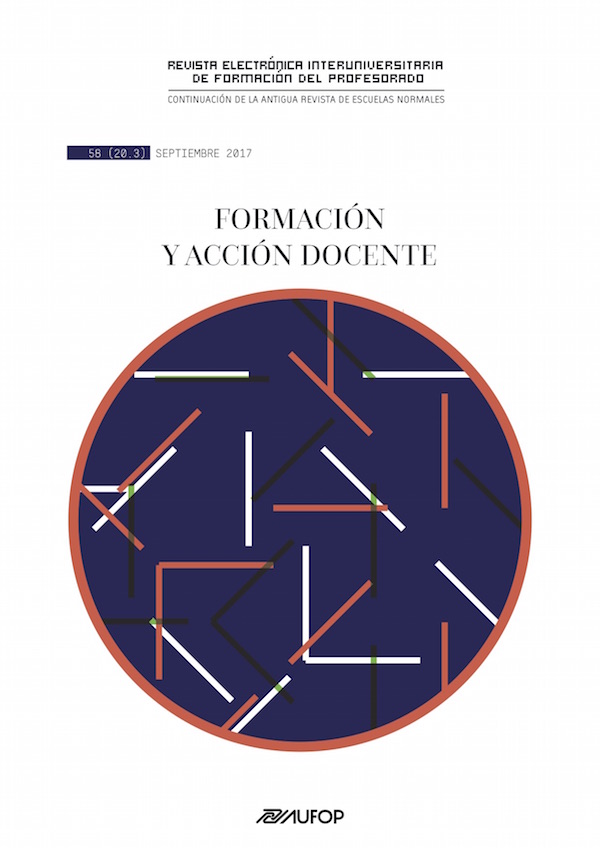Mathematical competence, attitude and anxiety towards mathematics in future Primary school teachers
Abstract
Pre-service teachers’ mathematical competence, based on a proper command of school curriculum content, is an instrumental teaching competence, and attitude and anxiety are important factors when it comes to acquiring this competence. In order to analyse these students’ knowledge on school-level mathematics, to know their attitude and anxiety towards mathematics, to describe the relationship between cognitive and affective variables, and to signal frequent mistakes, 174 students from the University of Murcia (academic year 2016/17) were selected and given an exam on school-level mathematics and two questionnaires to measure anxiety and attitude towards mathematics respectively. The results show that one in three students did not have mathematical competence proper of the 6th year of Primary School, and that in the second year (the first year with a subject in mathematics), two in five students failed the test and one in five students failed all the blocks established in the Primary School Official Curriculum. Their attitudes towards mathematics was slightly positive and they did not have anxiety to mathematics. Men obtained better results than women and it was in Geometry that more mistakes were made. Students failed half the items implying reasoning and reflecting.
Downloads
-
Abstract2555
-
PDF (Español (España))1454
Los artículos que se publican en esta revista están sujetos a los siguientes términos:
1. El Departamento de Métodos de Investigación y Diagnóstico en Educación de la Universidad de Murcia (España), junto con el Servicio de Publicaciones de la Universitdad de Murcia (Editum) son los editores de la revista REIFOP y conserva los derechos patrimoniales (copyright) de los artículos publicados, permitiendo la reutilización de las mismos bajo la licencia de uso indicada en el punto 2.
2. Las obras se publican en la edición electrónica de la revista bajo una licencia Creative Commons Reconocimiento-NoComercial-SinObraDerivada 3.0 España (texto legal). Se pueden copiar, usar, difundir, transmitir y exponer públicamente, siempre que: i) se cite la autoría y la fuente original de su publicación (revista, editores y URL de la obra); ii) no se usen para fines comerciales; iii) se mencione la existencia y especificaciones de esta licencia de uso.
3. Condiciones de auto-archivo. Se permite y se anima a los autores a difundir electrónicamente las versiones pre-print (versión antes de ser evaluada) y/o post-print (versión evaluada y aceptada para su publicación) de sus obras antes de su publicación, ya que favorece su circulación y difusión más temprana y con ello un posible aumento en su citación y alcance entre la comunidad académica. Color RoMEO: verde.















